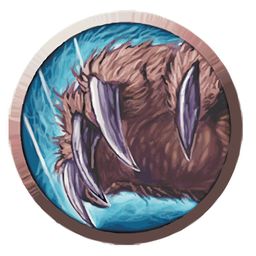public InputBoxField(int boxWigth,int boxHeight,String boxText){
super(Manager.NO_VERTICAL_SCROLL);//禁用垂直滚动
this._boxHeight = boxHeight;
this._boxWigth = boxWigth;
this._boxText = boxText;
_vfm = new VerticalFieldManager(Manager.NO_VERTICAL_SCROLL);
//EditField.NO_NEWLINE 设置输入框不可换行
_ef = new EditField("","",10,EditField.NO_NEWLINE){
//创建一个EditedField,并设置其中字符的显示颜色。
public void paint(Graphics g){
//getManager().invalidate();
g.setColor(Color.WHITE);
super.paint(g);
}
};
_ef.setBackground(BackgroundFactory.createSolidBackground(Color.BLACK));//设置EditedField的背景颜色
_vfm.add(_ef);
_vfm.setPadding((_boxHeight-_ef.getFont().getHeight())/2, 10, 10, 5);//设置输入区域和外边框的间距
add(_vfm);
}
然后我们需要覆写sublayout方法,告诉布局管理器该组件的大小
protected void sublayout(int maxWidth, int maxHeight) {
if(_boxWigth == 0){
_boxWigth = maxWidth;
}
if(_boxHeight == 0){
_boxHeight = maxHeight;
}
//super.sublayout(maxWidth, maxHeight);
setPositionChild(_vfm, 2, 0);
layoutChild(_vfm, _boxWigth, _boxHeight);
setExtent(_boxWigth, _boxHeight);
}
覆写paint方法,在原有的EditedField的四周换上我们想要的边框并处理焦点事件。
protected void paint(Graphics g) {
super.paint(g);
int oldColor = g.getColor();
if(this.isFocus()){
if(_ef.getText().equals(_boxText)){
_ef.setText("");
}
g.setColor(Color.BLUE);
for(int i =0;i<4;i++){
g.drawRoundRect(i,i,getWidth()-i*2,getHeight()-i*2,15,15);
}
}else{
if(_ef.getText().equals("")){
_ef.setText(_boxText);
}
g.setColor(Color.BLUE);
g.drawRoundRect(3, 3, getWidth()-6, getHeight()-6,15,15); }
g.setColor(oldColor);
}
接下来覆写onFocus和onUnfocus方法
protected void onFocus(int direction) {
super.onFocus(direction);
_ef.setCursorPosition(_ef.getTextLength());
invalidate();
}
protected void onUnfocus() {
super.onUnfocus();
invalidate();
}
